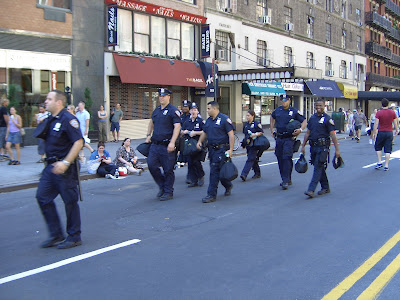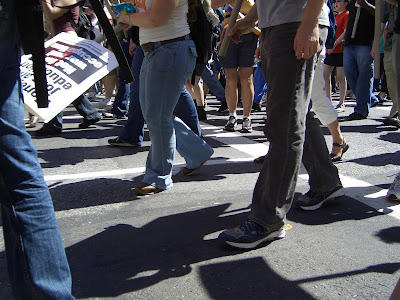Call for Papers: SHARP @ RSA 2008
 The Society for the History of Authorship, Reading & Publishing (SHARP) will sponsor several panels at the Renaissance Society of America's annual meeting in Chicago from 3-5 April 2008. Organized by Steven W. May, Anne Lake Prescott and Michael Ullyot, SHARP @ RSA links the RSA with scholars studying the creation, dissemination, and reception of script and print. Since 2001 we have organized 21 panels at RSA meetings.
The Society for the History of Authorship, Reading & Publishing (SHARP) will sponsor several panels at the Renaissance Society of America's annual meeting in Chicago from 3-5 April 2008. Organized by Steven W. May, Anne Lake Prescott and Michael Ullyot, SHARP @ RSA links the RSA with scholars studying the creation, dissemination, and reception of script and print. Since 2001 we have organized 21 panels at RSA meetings.We will have two themes in 2008 (although more than two panels), and invite submissions that consider English and Continental books and manuscripts from 1350 to 1700 in relation to either of them:
[1] Abridgements, Epitomes, Indexes, and Examples
Roger Ascham called abridgements 'a silie poore kinde of studie.' Why did people abridge texts, and how did people read them? Did abridgements--of the apocrypha, of John Foxe, of legal decisions and political history, &c.--serve or betray their sources and readers? Papers might also address the rhetoric of exemplarity in a range of practices (citing, persuading, condensing, indexing).
[2] Determining Renaissance Authorship
What tests or techniques allow us to add or remove texts, or parts of texts, from an author's canon with confidence? What is the role of attribution in interpretation? What do we owe to printers and publishers? The organizers are particularly interested in non-dramatic collaborative texts.
Please send abstracts (150 words) and one-paragraph CVs to *each* of the three organizers: < michael.ullyot@ell.ox.ac.uk > and
For more information on the Renaissance Society of America conference, see http://rsa.org/meetings/. All participants must be members of the RSA by August 2007 or they cannot be included in the programme.

























